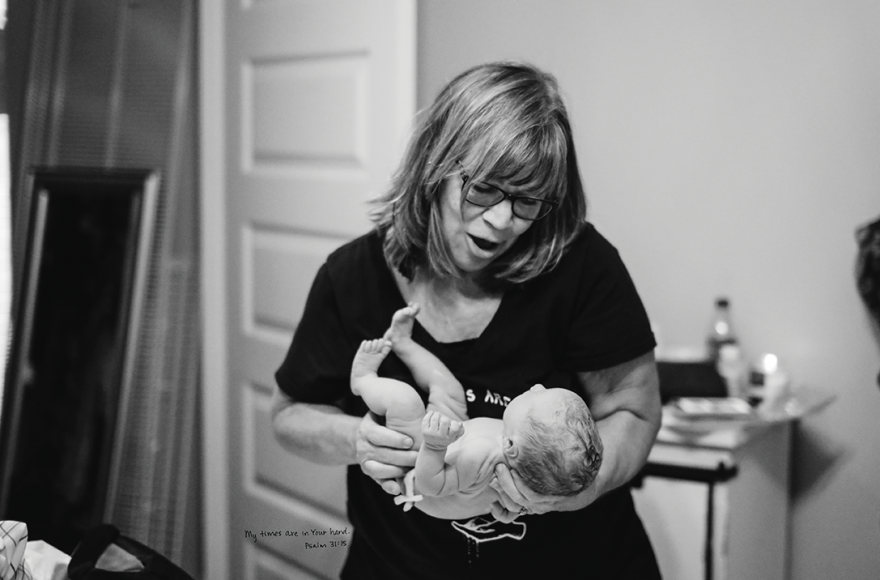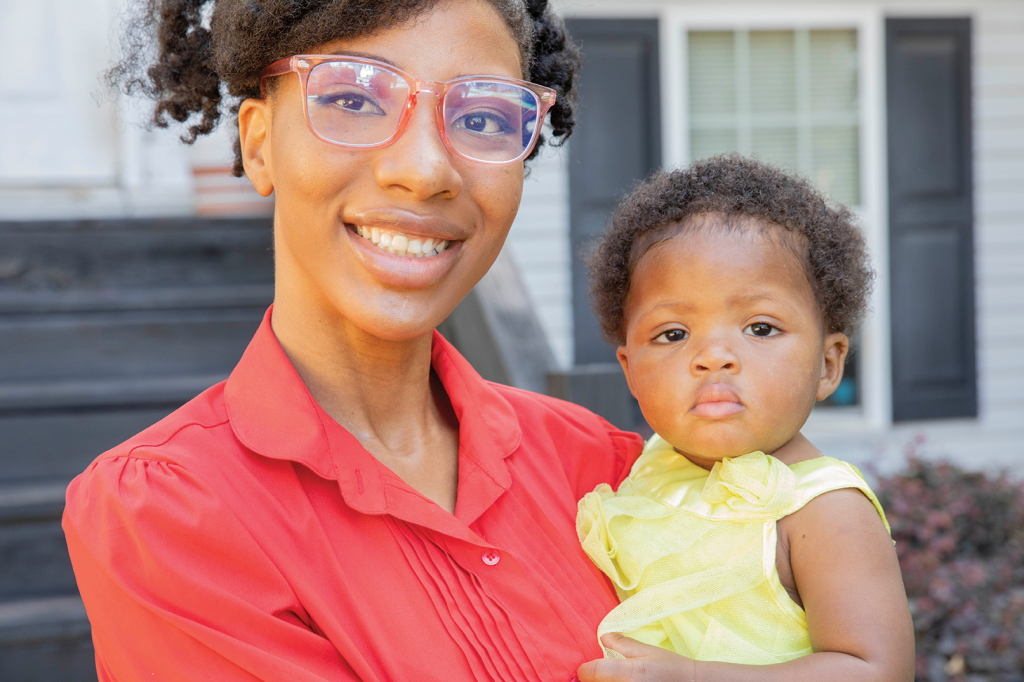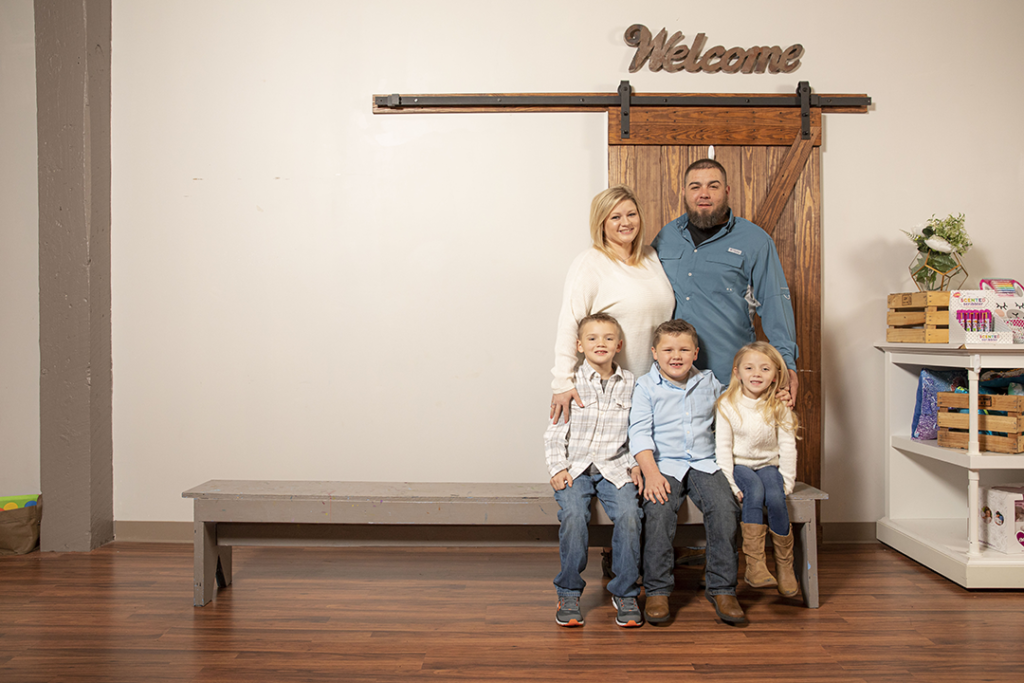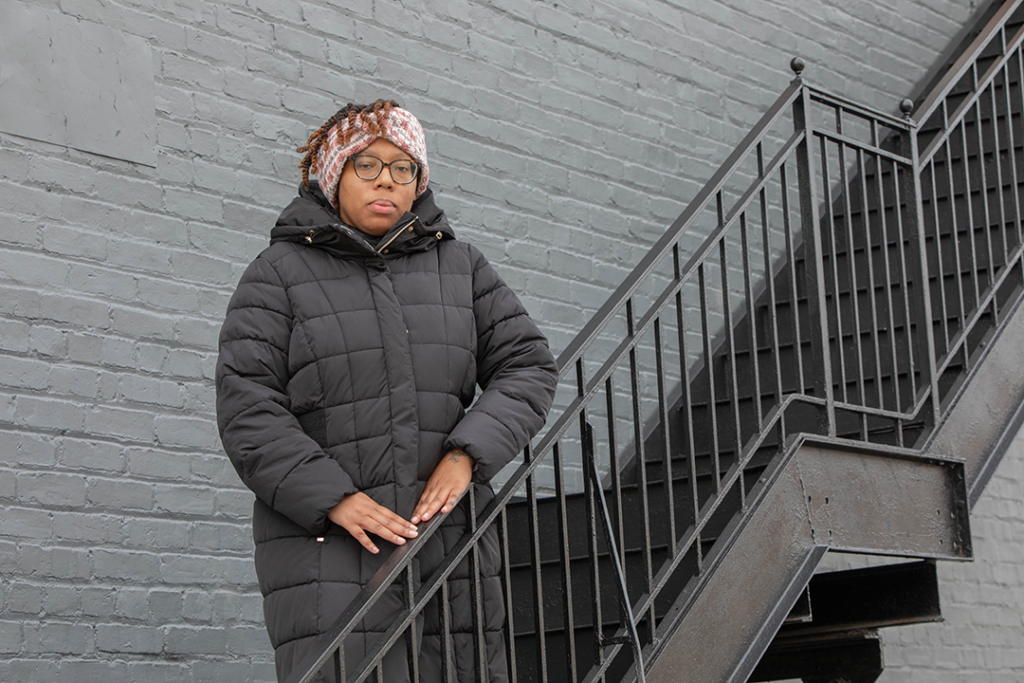Midwife Debbie Fulmer has made hundreds of natural, dignified births possible for clients across the entire socio-economic spectrum, from blue-collar workers to white-collar professionals.
Debbie Fulmer has seen a lot in more than 30 years of delivering babies, but what she witnessed while working as a labor and delivery nurse in the 1970s changed the course of her life forever. Many obstetricians in the South still touted the benefits of placing women into “twilight sleep” during labor. The procedure involved administering a cocktail of narcotics that promised pain-free birth and complete amnesia afterward. While the practice sounded good, the reality was much different. Babies delivered after twilight sleep were often limp and unresponsive, their tiny systems sedated by the powerful medications crossing the placenta during prolonged labor. Many women were tied to the bed due to the drug-induced delirium that caused violent thrashing during contractions.
“Women would wake up with bruises all over their arms and legs and have no idea how it happened,” Fulmer said. “One of the drugs prevented mothers from being able to remember what they had suffered.”
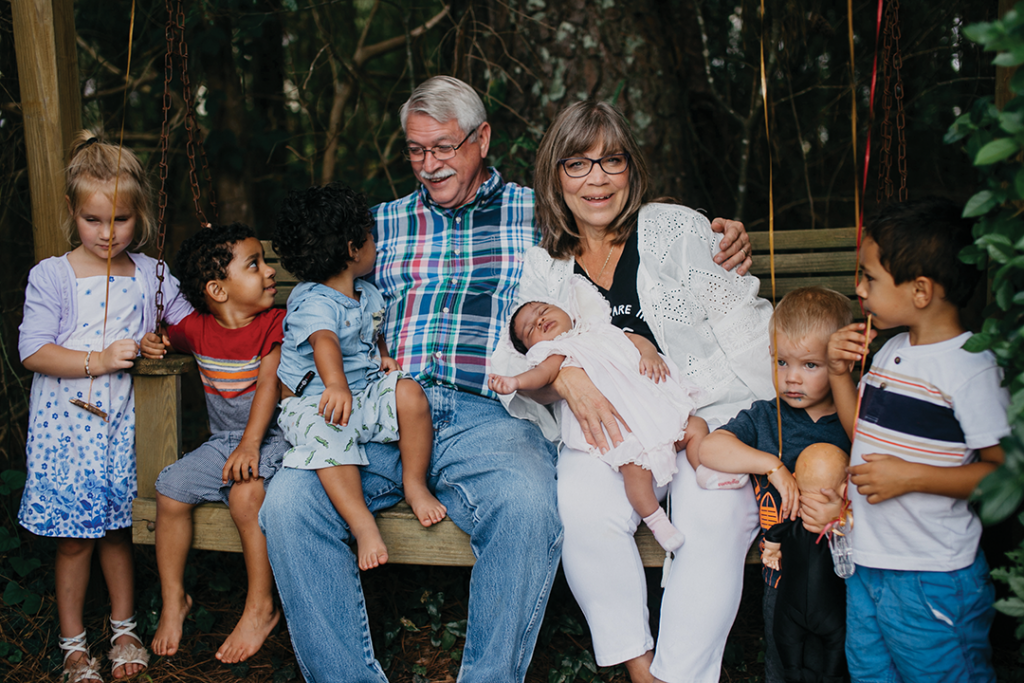
However, Fulmer had no way of erasing the trauma she had seen. Few women chose natural birth during that time, but the idea was beginning to spread. After assisting with several natural deliveries, Fulmer knew her mission in life: Return women to birth with dignity. Now, the Certified Professional Midwife operates Parents United At Home Birthing Services in Covington. Fulmer’s path from hospital nurse to PUAH founder was a long one.
“I stopped counting after 2,000 hospital births,” she said. A strong woman of faith, Fulmer began to feel she was being called to leave nursing and become a midwife. “I heard a sermon about Moses’ midwives, Shiphrah and Puah, and began praying about it. Out of the blue, I got a call from a friend asking me to teach childbirth classes. She said, ‘I’ve been praying about it—you are the one.’”
“I heard a sermon about Moses’ midwives, Shiphrah and Puah, and began praying about it. Out of the blue, I got a call from a friend asking me to teach childbirth classes. She said, ‘I’ve been praying about it—you are the one.”
Certified Professional Midwife Debbie Fulmer
Fulmer went on to write childbirth curriculum and teach for several years while building her own family. She connected with a director of nurses who invited her to help deliver babies on call whenever she liked, allowing her to work while being a stay-at-home mom. Eventually, the Fulmer family relocated from Mississippi to Georgia, where her husband, Jimmy, became pastor of Shoal Creek Primitive Baptist Church in Newborn. Fulmer befriended a local OB-GYN who taught her birth maneuvers, stitching and how to handle obstetric emergencies. After working with him, a homebirth midwife took Fulmer under her wing, teaching her how to translate her knowledge from the hospital setting to the home.
Fulmer’s transition from hospital nurse to midwife included earning her CPM credential from the North American Registry of Midwives. The organization’s difficult certification process requires apprenticing with a qualified midwife and completing a portfolio process or graduating from a midwifery school. Although CPMs are not required to be nurses, Fulmer’s nursing experience plays a role in ensuring her patients receive the best care.
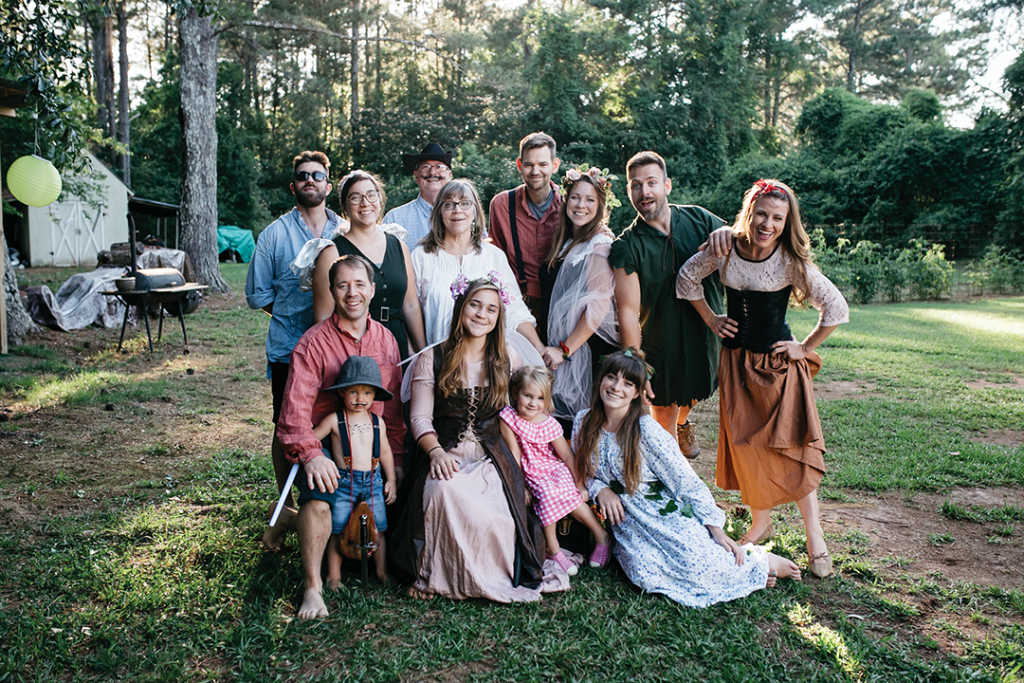
“Everybody I take care of has to attend a childbirth class and have an OB on backup in case complications develop,” Fulmer said. “Continuing education is important and required for all the midwives in my practice. They are all certified in CPR and neonatal resuscitation.”
Fulmer is an advocate for the “Georgia Moms Deserve Midwives” campaign (Georgia House Bill 717) and has hopes of starting an affordable and accessible midwife training program in Georgia. “Right now, certified midwives have to go away for training on a regular basis,” she said. “It would be nice to not have to travel to do that.” CPMs are active participants in a woman’s pregnancy, from the first pre-natal visit to comprehensive post-natal care. They are trained in identifying women who need a referral to an obstetrician and rely on time-tested methods that use as few technological interventions as possible. CPMs focus on a woman’s entire well-being, not just her physical health.
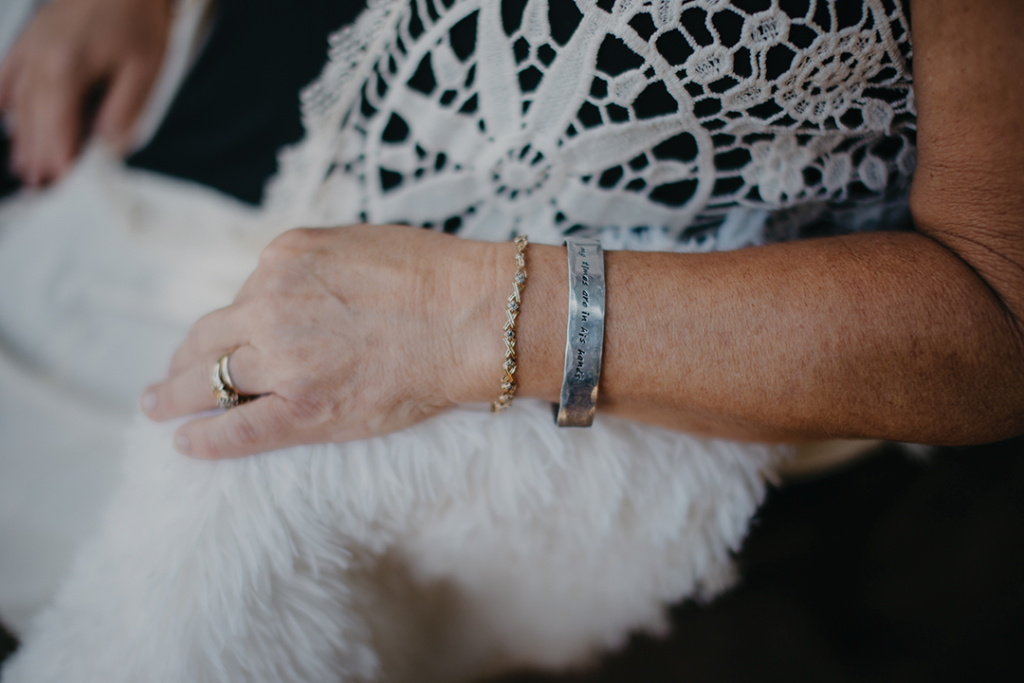
“I consider this a God-called ministry,” Fulmer said. The mother of nine personally understands a woman’s need for compassionate care before and after each birth. “I’m on call three weeks before the due date and for two weeks after delivery. I am always available. Midwifery is not like a job where you clock out and go home.”
Because of the length of time that Fulmer spends with each client, lifelong friendships are formed. In fact, the first home-birthed baby Fulmer delivered by herself has now become her apprentice. Fulmer has many multi-generational clients, delivering the children and grandchildren of babies she welcomed decades ago.
“I don’t call them patients. I call them friends,” she said with a smile. Fulmer’s clients represent the entire socio-economic spectrum, from blue-collar workers to white-collar professionals. “There is a big demand for CPM services in our area. Homebirth parents are not illiterate, poor people. They are professionals, names you would recognize. They have done a lot of research and made an educated decision about the kind of birth they want.”
A reunion of Fulmer’s friends is planned for this fall, as dozens will gather to celebrate the woman who made hundreds of natural, dignified deliveries possible. However, the event carries a certain poignancy: Fulmer was recently diagnosed with a rare form of cancer.
“Psalm 31:15—‘My times are in Your hand’—has become my life verse through years of midwifery,” Fulmer said. “God has the timing of all my births and the details of my life in His hand. I’ve used a bracelet with the verse imprinted on it to assure many of my expectant mamas that they can rest in His timing.”
Due to her recent diagnosis, Fulmer finds herself resting in that divine timing more than ever. Fellow midwife Maria Quinones and apprentice Lydia McCoy help her continue to care for PUAH’s expectant mothers. The women are committed to continuing the work Fulmer started for decades to come.
“At this time, I am still enjoying helping women with their pregnancies and births, though Maria is taking on more of the client load and Lydia is finishing her schooling,” Fulmer said. “My times are truly in His hand.”
Click here to read more stories by Kari Apted.

